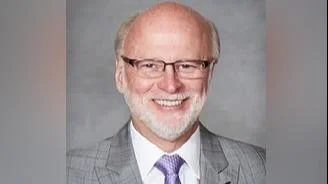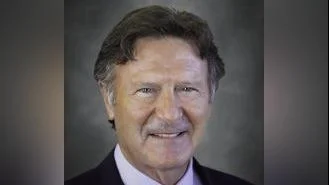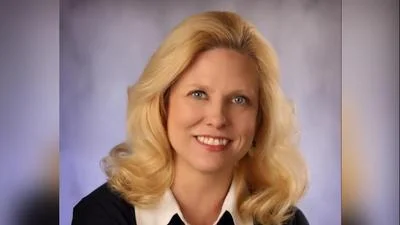Illinois State House District 89 issued the following announcement on Nov. 4.
Bipartisan Group of Legislators Call for Ethics Reform. Amidst ongoing public corruption investigations entangling multiple layers of Illinois government, Assistant House Minority Leader Grant Wehrli and a group of lawmakers is renewing the call for comprehensive ethics reform. At a Capitol press conference last Monday, the lawmakers said the General Assembly must take swift action to not only enhance Illinois’ current public ethics laws, but also called for the creation of a new task force.
“When the penalty for a litany of serious ethical violations is no more than a misdemeanor, it’s no wonder our statutes are failing to deter corrupt behavior,” said Wehrli. “Now the FBI is executing search warrants across almost every level of government, and officials who hold influential positions are at the center of several investigations. There can be no more excuses for inaction.
“Releasing House Bill 361 from the rules committee and giving it a fair hearing needs to be the first step in this process. If the General Assembly can’t take some basic action to rein in our own bad actors, then the notion of this body acting in the best interests of the people of Illinois is a farce.”
As a first step in the process to restoring public trust, HB 361 dramatically increases the fines legislators face for engaging in numerus restricted activities and for violations of legislator rules of conduct. Wehrli also noted several other pieces of ethics reform legislation that has been filed in recent years, but never received full consideration by the General Assembly.
Rep. Tony McCombie leads charge for Ethics Reform Task Force Legislation. In the wake of ongoing federal investigations surrounding state and municipal governments, state lawmakers announced legislation creating an Ethics Reform Task Force. The Task Force will assess current laws, study best practices, and propose legislation to ensure Illinois has among the most stringent ethics laws in the nation.
“There are too many lapses to ignore. Structural deficiencies require the General Assembly to take action together on behalf of those we serve,” said State Representative Tony McCombie. “To not move this resolution forward is to embrace the status quo. We must begin the process of restoring the public’s trust by passing this resolution before the end of Veto Session.”
“Illinois has long had severe problems with ethical lapses in government,” said State Senator Sue Rezin. “Corruption is costing hard-working taxpayers too much, and tougher laws to prevent this are long overdue in our state. This ethics task force is essential to sorting out what exactly our state needs to reform to make corruption more difficult to undertake, and easier to detect and prosecute.”
“Illinois taxpayers are sick and tired of corruption. There is no time in recent history when more active investigations were going on regarding untoward actions of elected officials in Illinois,” said State Representative Andrew Chesney. “This is not only an issue of good public policy, but speaks to the trust of Illinois citizens in their government officials. I will not allow fear to guide my actions, but, rather, faith that we can and must do better.”
McCombie filed House Joint Resolution 87, the resolution to create the State Ethics Task Force, in the lead-up to the Fall Veto Session. The Task Force will be comprised of nine members: Member of the Governor’s Staff or the Lt. Governor and two legislative members appointed by each caucus leader. The Task Force has a limited time frame to accomplish its work, with findings and a final report recommending legislative changes to the Governor and General Assembly due within ninety days following passage of this joint resolution.
House Republicans call for Arroyo’s resignation, file petition to remove him from office. Following a day that saw both House Republican Leader Jim Durkin then Speaker Michael Madigan call for resignation of State Representative Luis Arroyo (D-Chicago) after news of federal bribery charges against Arroyo, Representative Tony McCombie followed through in filing a Special Investigating Committee Petition aimed at beginning the process of removing Arroyo from office in the Illinois House.
House Rule 91 was invoked in initiating a Special Investigating Committee, the first step in the process for House members to remove a duly elected fellow House Member from office.
“A current House member’s arrest on a federal bribery charge is a serious development that demands immediate creation of a Special Investigating Committee,” McCombie stated after filing her Petition, which requires the signature of three fellow legislators. State Representatives Amy Grant and Blaine Wilhour, both Republican legislators, co-signed McCombie’s Petition.
The Petition was called for earlier in the day by Republican Leader Jim Durkin unless Arroyo resigned his office before the end of the day. When that resignation did not occur, McCombie initiated the Petition to appoint a six member bipartisan Special Investigating Committee toward reprimanding their colleague.
Cited as background for filing her Petition was Arroyo’s arrest on October 25, 2019 on a federal bribery charge following an investigation by the Federal Bureau of Investigations (FBI). According to the charge, Arroyo allegedly offered a $2,500 bribe to a current sitting State Senator in return for support of Sweepstakes legislation. There was an expectation that this payment would be the first of a series of payments to the Senator in exchange for his vote. The Senator, who worked as a cooperating witness for the FBI is also expected to be charged with filing false income tax returns and apparently wore a wire on behalf of the FBI in exchange for consideration on his own federal charges.
“Yesterday, I called for an Ethics Reform Task Force. While our Press Conference was still ongoing, the news of this new scandal broke. The time to end corruption in Illinois is now. I urge my colleagues to co-sponsor House Joint Resolution 87 to initiate an Ethics Task Force while we go about the work of immediately starting to remove colleagues who are self-dealing,” Rep. McCombie continued.
Demmer Introduces Legislation to Ban Lawmakers from Performing Paid Lobbying Work with Local Government Units. In light of news reports that a member of the Illinois House of Representatives was arrested by Federal agents for attempted bribery of a public official, Deputy Republican Leader Tom Demmer introduced legislation Tuesday that would ban lawmakers from performing paid lobbying work with local government units while in office.
“As evidenced by the case of State Representative Luis Arroyo, lawmakers who serve as lobbyists can push legislation they can benefit from financially. That is wrong and a violation of our oath of office,” said Rep. Demmer. “There is a clear conflict of interest for sitting lawmakers to perform paid lobbying work while in office. House Bill 3947 would ban lawmakers, their spouses, and live-in immediate family members from that activity. I urge my Democratic colleagues to support this bill and other ethics reform measures so we can eliminate conflicts of interest and restore trust in state government.”
The legislation, House Bill 3947, would ban members of the General Assembly, their spouses, and immediate live-in family members from performing paid lobbying work with local government units. Currently, members of the Illinois General Assembly – state representatives and state senators – are prohibited from lobbying the State of Illinois, but are not prohibited from lobbying local government units, such as a counties or municipalities.
On Friday, October 25, Democratic State Representative Luis Arroyo of Chicago was arrested by Federal agents for attempted bribery of a public official. Arroyo works as a registered lobbyist with the City of Chicago in addition to his duties as a state representative. According to the United States Department of Justice, Arroyo attempted to bribe an unnamed state senator $2,500 per month in exchange for supporting legislation that would benefit one of Arroyo’s lobbying clients. If convicted of the corruption charges, Arroyo faces up to 10 years in prison.
If HB 3947 were law prior to Rep. Arroyo’s attempted bribery scheme, he would have been precluded from performing paid lobbying work on behalf of his client while serving in office.
House creates Special Investigating Committee to remove Rep. Arroyo from office, leading to Arroyo’s resignation Friday. The newly-created Special Investigating Committee was to meet on Friday to begin its investigation into the charges against Rep. Luis Arroyo. The Committee was formed viaa power enumerated under House Rule 91 that allows for disciplinary action following an investigation.
“It’s for the public’s trust,” House Republican Leader Jim Durkin told reporters of the need to investigate Arroyo and remove him from the House. “I think sitting back and just saying, ‘We’ll wait to see what a judge and jury will do down the road’ is not sufficient for me nor my caucus.”
Prior to the Special Investigating Committee’s first scheduled meeting on Friday, Rep. Arroyo resigned from office.
State Representative Tom Demmer released the following statement in response to the resignation of State Rep. Luis Arroyo:
“The criminal complaint against Rep. Arroyo has shaken any trust the public had left in the General Assembly. In an effort to begin restoring public confidence, Senator Terry Link needs to step down immediately from his position on the Legislative Ethics Commission while this widespread federal investigation continues.”
GENERAL ASSEMBLY
First week of fall veto session in Springfield. During the first week of veto session, the Illinois General Assembly held three days of discussion and debate at the State Capitol. Issues discussed include ethics, corruption, taxes, ethylene oxide, sweepstakes machines, e-cigarettes, college sports, pension reform, and other topics.
Most of the items discussed last week have not yet reached closure. Agenda items discussed in the Illinois House are moving to the Senate, and Senate items are moving to the House. The members of both chambers of the legislature will return on Tuesday, November 12 for a second three-day period of veto session. The status of all bills, resolutions, and other written items under formal discussion can be tracked on the Illinois General Assembly
Original source can be found here.






 Alerts Sign-up
Alerts Sign-up